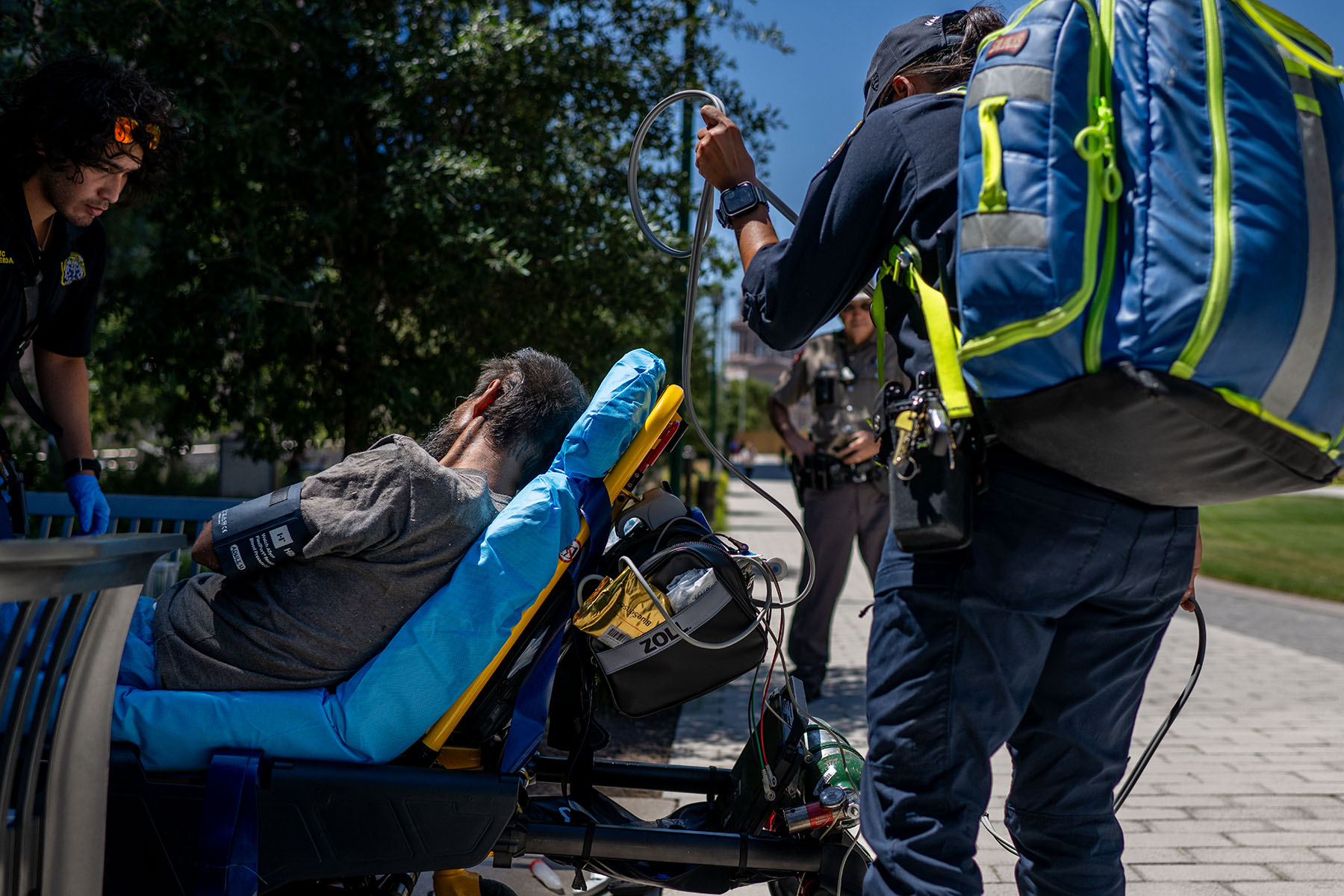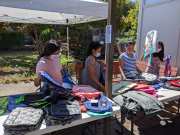Your trusted source for contextualizing the news. Sign up for our daily newsletter.
A new dashboard launched by the Biden administration to track heat-related illnesses will help municipalities and medical professionals with prevention efforts and assist families as they make housing decisions, particularly for older adults, experts say.
The EMS HeatTracker launched last week monitors the number of heat-related illness calls emergency services receive on a county-by-county basis, as well as the gender, race, age and more of those who become ill due to high temperatures across the United States. The tracker, the first of its kind, will be updated weekly.
This summer has been the hottest on record due to climate change.
“Each year heat kills more people than any other type of extreme weather event, and the heat is getting worse,” said John Balbus, acting director of the Department of Health and Human Services’ Office of Climate Change and Health Equity. Balbus’ department, in partnership with the National Highway Traffic Safety Administration, is responsible for developing and maintaining the dashboard.
Balbus told The 19th that the dashboard has been in development for about a year and was initially inspired by a similar dashboard that tracks opioid overdoses.
-
Read Next:
Balbus noted that it can be difficult for local authorities to receive resources to manage heat-related illnesses, due to the quiet nature of extreme heat compared with other natural disasters like hurricanes or tornadoes.
“It’s not as obvious as property damage. Having this kind of data at the county level will inform local health departments and local emergency planners that they have an issue in their community, to help them get resources for tree planting or for cool roofs or for home weatherization,” he said.
Older adults are at heightened risk of death from heat-related illnesses, but some of the hottest parts of the United States are also popular places for older adults to live.
“At the aggregate population level, the places now that are really, really hot — Florida, Arizona, Texas, New Mexico, those places that are hot and getting hotter due to climate change — are precisely the places that are seeing the most rapid population aging. Older people are still moving there,” said Deborah Carr, a professor of sociology at Boston University.
Carr noted that older women, in particular, may be at heightened risk. Women tend to live longer than men, and the older someone is, the more at-risk they are likely to be.
-
Read Next:
“Older women are among the most likely of all populations to live by themselves. So they don’t have a helper, sometimes that makes them all the more vulnerable to heat,” Carr said.
In a recent paper published in The Gerontologist, the official journal of the Gerontological Society of America, Carr estimated which regions might be the most hazardous for older adults as climate change accelerates. She praised the new dashboard.
“These websites that are put out by different organizations, including the federal government, that provide insights into what the current and future weather situations might be, and weather-related crises, are an absolutely important and critical piece of information that older people need to consider when making a relocation decision,” Carr said.
Dr. David Capper, chair of clinical sciences at Texas Christian University’s Burnett Medical School, stressed the importance of checking on older family members during extreme heat, especially those who might be isolated.
-
Read Next:
“If family and friends know that grandma lives alone in her house that she’s had for 60 years — the key is to be willing to reach out, to be willing to check on her every day during severe heat waves,” he said.
Capper also praised the new dashboard, noting that more information will help public officials, families and clinicians address the problem.
“It’s very important [to track heat-related illness] because it’s preventable. That’s not political — it’s purely medical. Heat-related illnesses are preventable by educating the public and by providing water and by providing, in severe heat, providing shade and air movement and/or shelter,” Capper said.
Balbus stressed the importance of tracking and mitigating the impact of climate change, beyond politics.
“The Biden administration recognizes that the climate crisis is making heat events more severe and more frequent, of course. But it’s not just the Biden administration,” he said. “It’s all public health officials’ work on climate change. It’s the World Health Organization. It’s the American Public Health Association, it’s 200 of the leading medical journals around the world who have declared the climate crisis as a great threat. It’s scientific consensus, not a political issue.”








